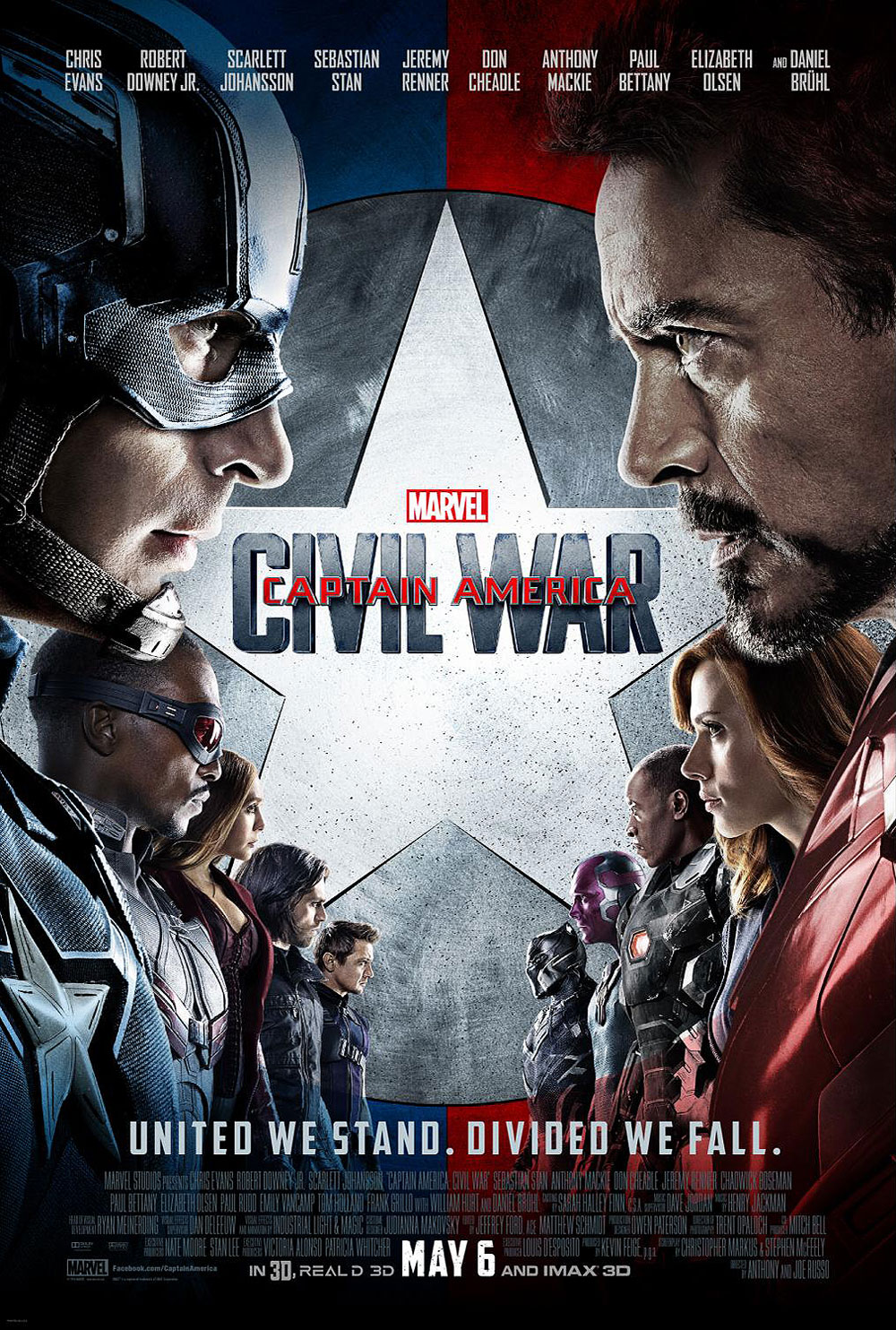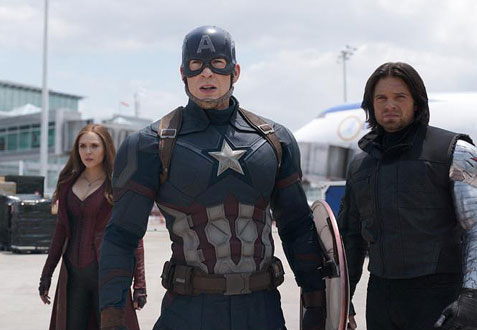Movie Review: “Captain America: Civil War”

By all rights, Captain America should be the lamest, worst Avenger. He came of age decades before the topic of segregation was even entertained. Rock & roll hadn’t been invented yet. If Steve Rogers is a real person, he’s likely a racist crank, yelling at the other Avengers to get off his lawn.
Thankfully, the Cap in the Marvel Cinematic Universe is none of those things. Steve Rogers is an open-minded skeptic, for whom Japanese internment camps are still a recent event. (It is not a coincidence that the word ‘internment’ is used in a crucial scene here.) He is mistrustful of the government — and who can blame him, after the events of “Captain America: The Winter Soldier” – and therefore loath to see the country he loves overstep its bounds a second time. This makes him a perfect foil for Iron Man/Tony Stark, a man whose genius is eclipsed only by his ego, and for whom reparations and accountability make sense, as long as everyone else pitches in to help him pay his bar tab.
This is the crux of “Captain America: Civil War.” The plot is more streamlined than the ’70s-era, conspiracy-minded “Winter Soldier,” but there are still some unsettling themes at play here, chief among them the concepts of freedom and safety, and the fear of compromising one for the other. The comics on which this film is based were written 10 years ago, presumably to point a finger at the George W. Bush administration for overreaching in terms of surveillance. Sadly, they’re even more prescient now.
Captain America (Chris Evans) and a handful of Avengers are tailing a group of baddies intent on stealing a deadly virus. The plot is foiled, but there is collateral damage in the form of civilian casualties. On the heels of the events in “Avengers: Age of Ultron,” the governments of the world are demanding accountability for the actions of the Avengers. Thus, an accord is written, which has near-universal support, that the Avengers, um, check themselves before they wreck themselves. Tony Stark (Robert Downey Jr.) is a chief supporter of the legislation, but Cap does not like the idea of the Avengers being kept in a holding pen and under governmental control.
Rogers’ case against containment is not helped when another terrorist attack takes place, and the culprit appears to be none other than his old friend Bucky Barnes, a.k.a. The Winter Soldier (Sebastian Stan). This only causes Stark and Rogers to dig in deeper, leading the Avengers to choose sides, while no one realizes that a larger game is being played.
The movie’s tone is similar to “Winter Soldier” in that it is the plot that drives the action and not vice versa, but when the action kicks in, it delivers on a number of levels. There is an escape sequence involving Cap and Bucky that has some of the finest choreography you will ever see, and the battle royale between the feuding Avengers alliances is one for the ages. The smartest move the script makes is staying as neutral as possible, making compelling arguments for both sides but ultimately taking Rogers’ side in the end, because it’s his movie.
“Captain America: Civil War” is the Avengers movie that “Age of Ultron” aspired to be. It balances an even larger cast of superheroes (hello, Ant-Man, Falcon, Vision, newcomer Black Panther, and hello again – again – Spider-Man) with a much more grounded, revenge-driven storyline. The reduced amount of political intrigue puts this just a notch below “Winter Solder,” but “Civil War” is one of the most entertaining, well-rounded Marvel films to date.
Related Posts
Comments Off on Movie Review: “Captain America: Civil War”
Posted in: Entertainment, Movie Reviews, Movies
Tags: Avengers, Captain America, Captain America: Civil War, Chadwick Boseman, Chris Evans, Robert Downey Jr., Scarlett Johansson
















